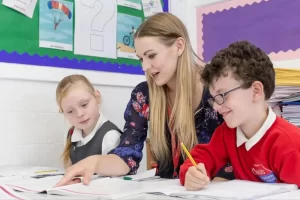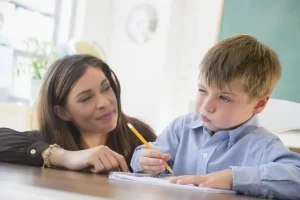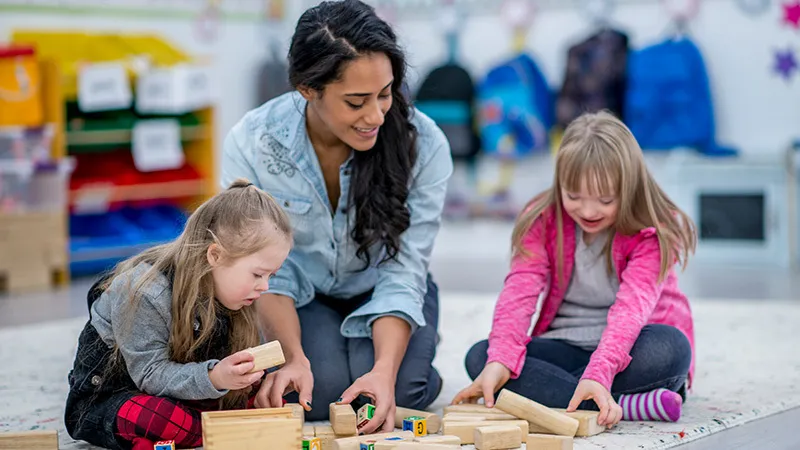
Becoming a Special Teacher is a voyage filled with distinctive challenges and thoughtful prizes. This profession needs not just a robust educational background, but also a deep understanding of varied learning requirements. How to I become a Special Educator? is an issue that involves more than just gaining qualifications; it also entails developing a thoughtful approach to training and learning.
In this article, we’ll discover the necessary steps to answer the question of How to become a Special Educator? From the essential education and certifications to the individual qualities required, we’ll instruct you through what it takes to shine in this profession. Whether you’re just starting out or looking to switch into this role, understanding How to become a Special Educator? is your initial step towards creating a meaningful change in the lives of learners with special requirement.
What is the Role of Special Educator?
The role of a special educator is multi-layered and essential in the educational background. At its heart, the role of a special educator includes familiarizing and providing instructional approaches to meet the different requirements of learners with learning, physical, emotional, or growing incapacities. Comprehending the role of a special educator is critical for anyone discovering how to become a special educator.
The following are main features that describe the role of a special educator:
Individualized Instruction
Tailoring learning experiences to individual student needs is a primary responsibility. This adaptation ensures each student can access the curriculum effectively.
Assessment and Evaluation
Special educators frequently assess students’ abilities and progress, modifying teaching strategies as needed. This ongoing evaluation is vital for effective learning outcomes.
Collaboration with Other Professionals
Working in tandem with other educators, therapists, and families is essential in this role. It safeguards an all-inclusive method to each learner’s education.
Developing IEPs (Individualized Education Programs)
Creating and implementing IEPs is a significant part of their job. These strategies are planned to set attainable learning goals and summary the essential help for each learner.
Emotional and Behavioral Support
Providing emotional and behavioral guidance is as important as academic instruction. This support helps students navigate their educational journey successfully.
Use of Assistive Technology
Incorporating technology to aid learning is another aspect of this role. It improves convenience and engagement for learners with various requirements.
Realizing the role of a special educator is essential to clutching how to become a special educator. Upcoming teachers must identify the various accountabilities this job needs. As we dig additional knowledge into how to become a special educator, it develops clear vision that this role demands not just educational experiences but also understanding, endurance, and a dedication to inclusive education.
The voyage to becoming a special instructor is as stimulating as it is rewarding, providing an opportunity to make an important influence in the lives of learners who require specialized teaching approaches.
Join Vidhyanidhi’s course, start your rewarding Special Educator journey now!
Call / Whatsapp on +919321024137 / +919869866277 to get Special Educator Course details.
Get a copy of your Special Educator Course brochure, Available Here.
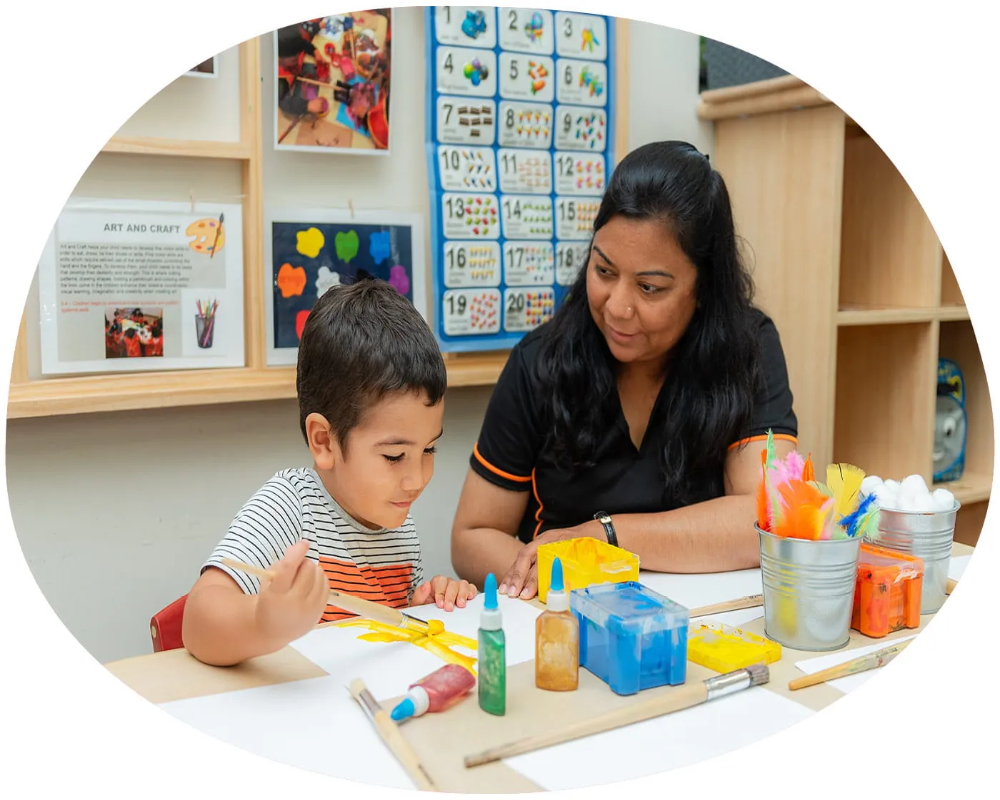
Skills of Special Educators
The journey of learning how to become a Special Educator is incomplete without a deep understanding of the specific skills required in this fulfilling profession. The Skills of Special Educators are multifaceted and crucial for effectively supporting students with diverse needs. To succeed in this field, one must master various competencies that go beyond conventional teaching methods.
Patience and Empathy
- Key among the Skills of Special Educators is patience. This character often includes working with learners who may need additional time to understand the concepts.
- Patience is vital, as it supports in comprehending the variant challenges suffered by each learner.
Creative Instructional Strategies
- Special Instructor requires to design lessons that cater to various learning styles and abilities.
- This might involve using visual aids, interactive activities, or technology to enhance learning.
Strong Communication Skills
- Operative communication with learners, parents, and other instructor is crucial.
- This involves being able to explain concepts in different ways and listening to the concerns of others involved in the student’s education.
Behavioral Management Expertise
- Understanding and managing a range of behaviors is a crucial skill.
- This includes creating a safe and supportive learning environment for all students.
Knowledge of Disabilities and Learning Theories
- A deep understanding of different disabilities and how they affect learning is fundamental.
- Keeping well-informed of current learning ideas and performs is also important.
As we explore more into how to become a Special Educator, it’s indistinct that these Skills of Special Educators are not just abilities but are core aspects of their identity as educators. Each skill intertwines with others, creating a holistic approach to special education.
For those upcoming to shine in this profession, constantly emerging and purifying these skills is a part of the continuing procedure of learning how to become a Special Educator. This commitment not only improves their professional development but also extremely influences the lives of their learners, creating the voyage of how to become a Special Educator both stimulating and hugely satisfying.
Join Vidhyanidhi’s course, start your rewarding Special Educator journey now!
Call / Whatsapp on +919321024137 / +919869866277 to get Special Educator Course details.
Get a copy of your Special Educator Course brochure, Available Here.
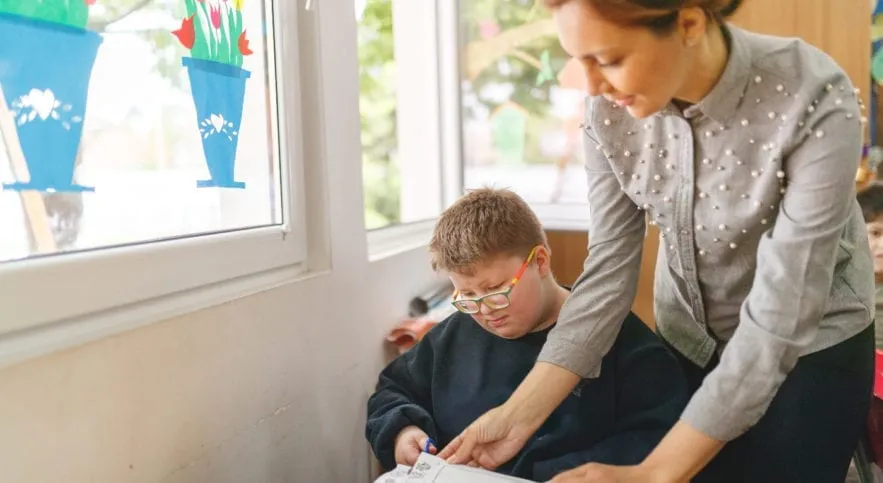
Special Needs Teaching Strategies
Special Needs Teaching Strategies are vital for the operative education of learners with varied learning requirements. These approaches not only improve the learning experience but also safeguard that each learner receives the consideration and help they need. In this framework, anybody thoughtful how to become a Special Educator should be well-experienced in a variety of Special Needs Teaching Policies.
The following are few important Special Needs Teaching Strategies:
Personalized Learning Strategies
Modifying education strategies to fit the different requirement of each learner is critical. This may include adjusting lesson strategies, assignments, and assessments to garb different learning styles and capabilities.
Use of Assistive Technology
Applying technology like speech-to-text software or audio books can be a game-changer. These gears support bridge learning openings and facilitate easier access to educational satisfied.
Creating a Structured Atmosphere
A predictable and organized schoolroom setting can expressively benefit learners with special requirement, providing a sense of safety and indorsing better education.
Building Robust Communication
Regular and operative announcement with parents, caregivers, and other instructors is necessary. This association safeguards constancy in methods and policies both at home and in school.
Positive Reinforcement
Encouraging and rewarding progress, no matter how small, is a key aspect of Special Needs Teaching Strategies. This approach boosts confidence and motivation among students.
Aspiring special educators should integrate these Special Needs Teaching Strategies into their teaching methodology. Understanding and implementing these strategies is a critical aspect of how to become a Special Educator. Furthermore, continuous professional development in this area is also a vital part of the journey in learning how to become a Special Educator.
Mastering Special Needs Teaching Strategies is not just about acquiring skills; it’s about nurturing an inclusive, empathetic, and supportive learning environment. For those discovering how to become a Special Educator, these approaches are the building blocks for generating a successful and impactful teaching profession, devoted to lecturing the unique requirement of every learner.
The route to becoming a Special Instructor is both inspiring and impactful. If you’re encouraged to create a difference in this profession, the Diploma in Special Education Needs from Vidhyanidhi Education Society is an outstanding starting point. This program provides in-depth information and practical skills, setting a robust foundation for a satisfying profession in special education. Board on this voyage with Vidhyanidhi Education Society and convert your interest into a professional reality.
Join Vidhyanidhi’s course, start your rewarding Special Educator Course journey now!
Call / Whatsapp on +919321024137 / +919869866277 to get Special Educator Course details.
Get a copy of your Special Educator Course brochure, Available Here.
How to become a Special Educator
FAQs
Which is best course for Special Education?
The best course for special education is the Diploma in Special Education Need Course by Vidhyanidhi Education Society.
Special Educator Eligibility Criteria
Eligibility for a Special Educator typically includes a Bachelor's degree in any discipline and specialized training in special education.
Which are Short Term Courses in Special Education?
Short-term courses include Diploma in Special Education Need, Learning Disability, and Certificate in Shadow Teacher Training by VES.


